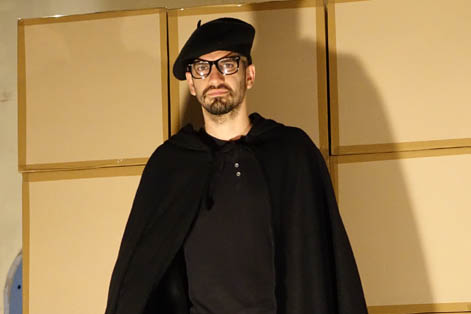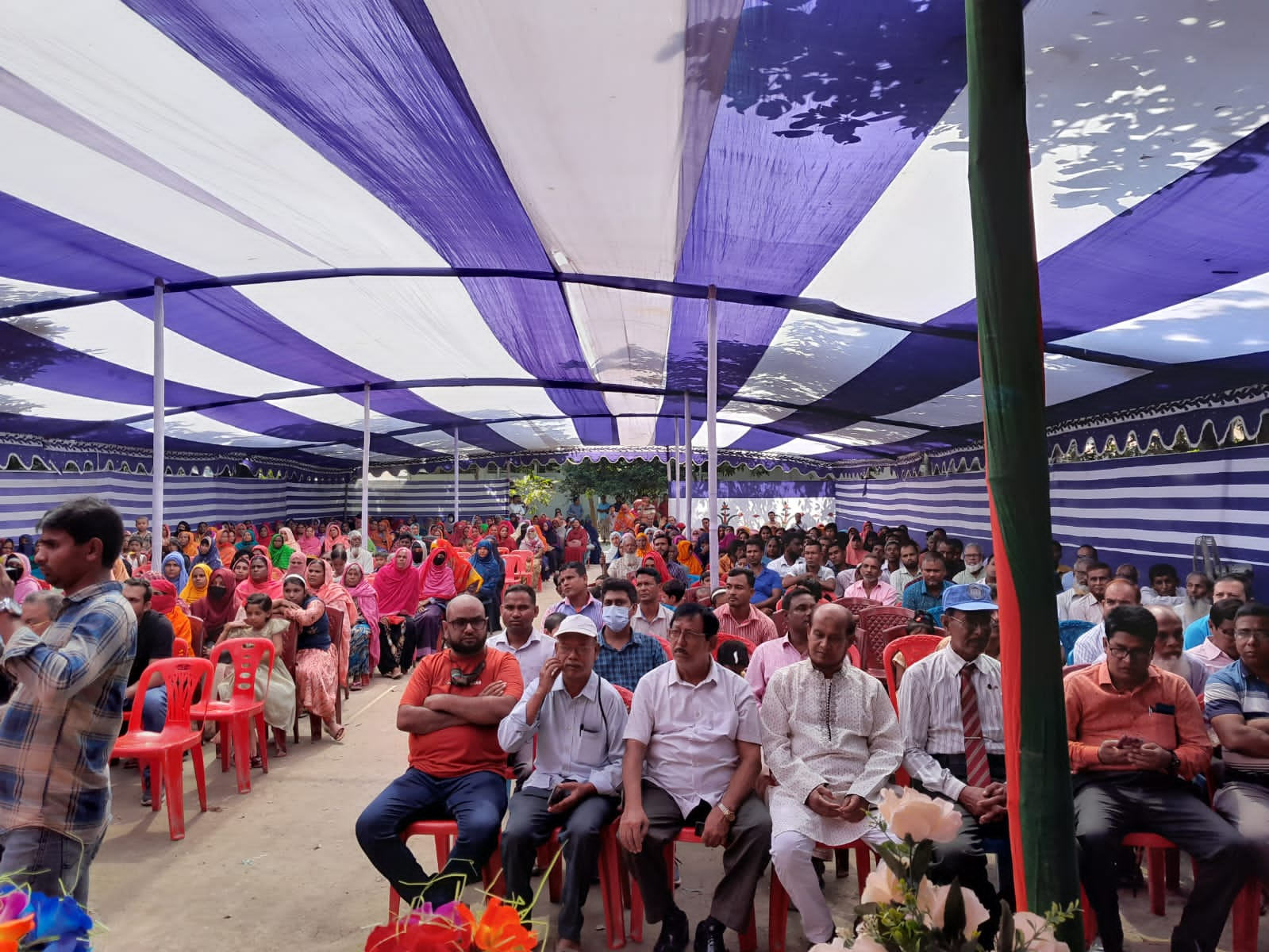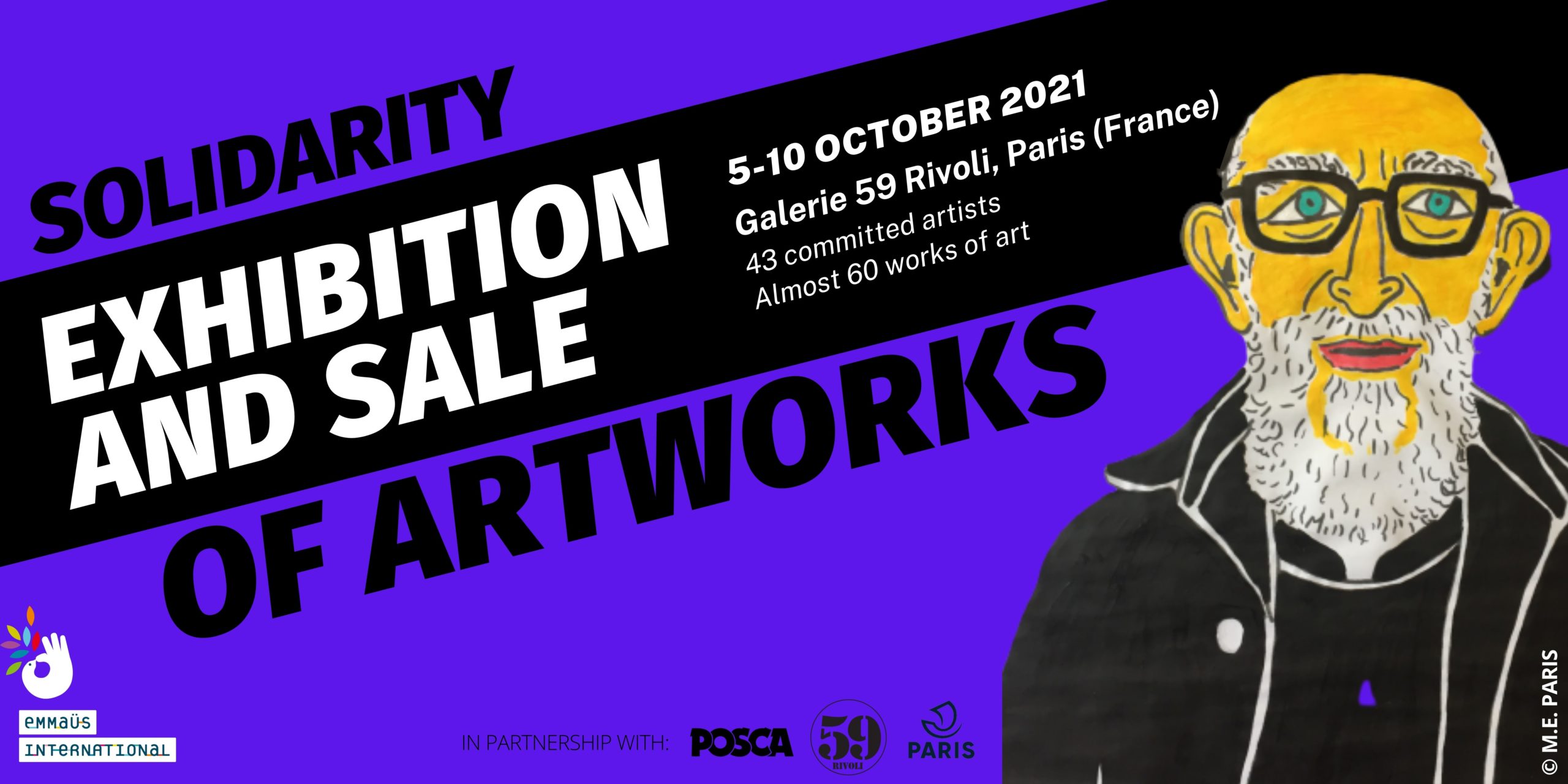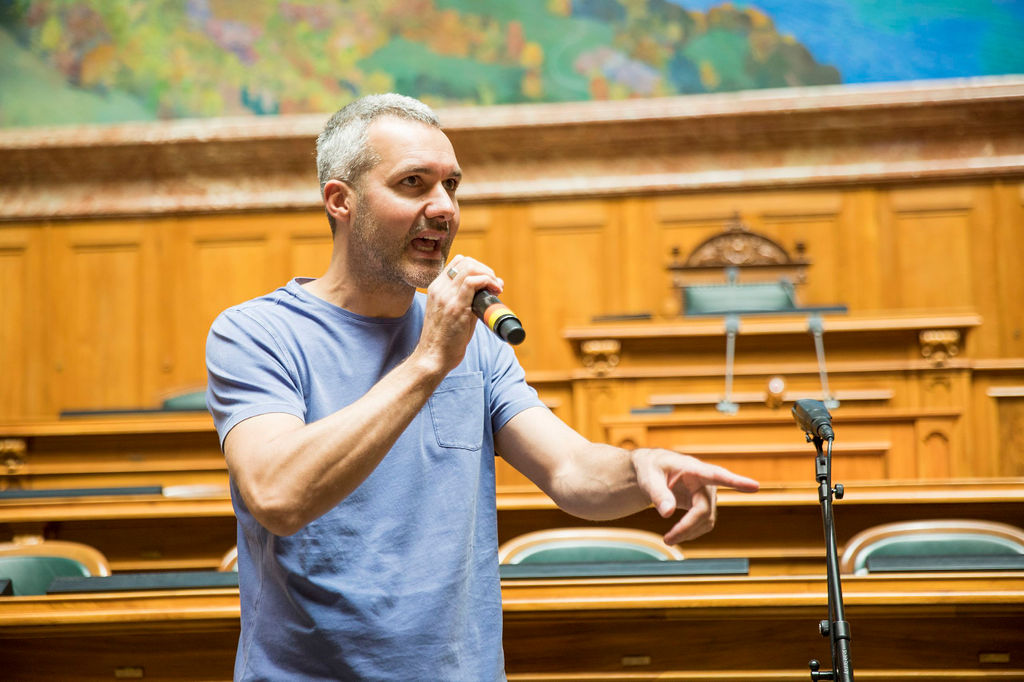Abbé Pierre on stage

In September and October actor Nicolas Vitiello played Abbé Pierre in a solo production of “La Voix des sans voix” (“Voice of the Voiceless”), for which he wrote the script. He tells us how this idea came about and why he sees the message of Abbé Pierre’s struggles as such a source of inspiration. The play will visit other towns in 2017, we will let you know once the dates are confirmed.
Interview conducted at the Théâtre Daunou in Paris, 5 September 2016.
What made you want to put on a solo show dedicated to Abbé Pierre and his story?
I came up with the idea to put on a one-man show shortly after the Charlie Hebdo* attacks. At that point, I think I did ask myself the right questions, rather than falling – as many people did – into the trap of rifts and divisions. I realised that what we were missing in France was some sort of ‘providential man’, and I thought, who in France have we been able turn to in troubled times in the past? Abbé Pierre soon sprang to mind, and I became very interested in him. What I found intriguing about his story was how this man just came out of nowhere, completely unknown, with no connections, and his sense of indignation against poverty was enough to disrupt a city, a country, and the whole of humanity! How was it that he managed to fight this battle throughout his whole life, and ensure that the battle raged on even stronger after his death?
How can a young actor like yourself, and young people in general, draw inspiration from Abbé Pierre and see themselves reflected in him?
I realised that Abbé Pierre was a source of inspiration to many young artists. There are poetry slams where his words are quoted, and there are street artists who paint portraits of him in the street. Young people find it easy to see themselves in Abbé Pierre because he was an extremely contemporary character. You can see that in the stance he took against the church; nowadays, if anyone dares to say things like that, they get called a radical progressionist. Most importantly though, his words remain so relevant in the modern day. When he said, “fundamentalism is a refuge from poverty because it offers a glimmer of hope to those who have nothing,” it was as if he could see the future! This is what I realised when I began to delve into his writings.
Emmaus International, Abbé Pierre’s sole legatee, endorsed your project to put on this show and is very enthusiastic about the result. What does that mean to you?
Since the start, my biggest fear was that I would somehow betray Abbé Pierre’s message, because this was my own adaptation of it, and there was just so much to tell. If you take what any of us could do in 20 lifetimes, he managed to do all that in just one! I’m very honoured that Emmaus put their faith in me, and that they do like the show. Having Emmaus behind me on this project has been a huge support, and I in turn want to support Emmaus and carry forward the memory of Abbé Pierre – to emphasize why Emmaus exists, and show people that it’s not just a little shop where you go to buy nice little bits and pieces.
Don’t you find it too emotional and heavy-going to speak in the first person, using Abbé Pierre’s own words?
Ever since I wrote this play, I’ve felt inhabited by Abbé Pierre, I haven’t managed to keep my distance. I spent a ridiculous amount of time learning my lines. Abbé Pierre spoke French very beautifully, and I wanted to make sure I did justice to that. As I was learning my lines, I realised that some parts were very difficult to say. He used to say things that were violent at times, he shook up public opinion. On more than one occasion, I found myself breaking down in tears, alone at home, as I uttered his words. When he picks up a child and says, “a baby has died at the Coquelicots camp” – well, I’ve just had a little boy myself, so that makes me think, who is this person who has just lost a child…
You spent a long time immersed in the archives attempting to understand the path and struggles of Abbé Pierre – did this enrich your understanding of what it means to be a citizen?
I was blown away by it. When you get informed, when you spend time with people from Emmaus, you become highly alert to these things. I came to understand the underlying causes of poverty. The structure we have is based on the power of money and economic rationale, and these things do not serve the interests of human beings. Money really is destroying us. Liberalism and unbridled globalisation, this idea of always wanting more, the idea that “we have to save the banks”… where do humans come into all that? When this was all before me, it totally blew me away, it woke me up.
Abbé Pierre lived a thousand lives. What type of working methods have you used to bring together this portrait and put on this show?
Quite quickly, a simple common thread emerged – the idea of a chronological order. Abbé Pierre wrote that, “my life is a succession of exceptional circumstances which, if placed one after the other, look like a cartoon.” So there was my structure! The turbulent youth of a bourgeois man, the arrogance of youth, entering the monastery, seven years of secluded life with the Capuchin monks, illness, war, the priest as a medal-honoured resistance fighter, the parliament, and the clergyman-parliamentarian who houses a French murderer. Then I took a big marker pen and highlighted the passages that I thought were most important – because in his book “Testament”, Abbé Pierre is all but chronological!
You highlighted one sentence in particular: “because it is our duty to want to be happy”. Why did you choose this phrase?
People have a genuine need to hold onto messages of hope such as this one. Regardless of religion, what matters is each person’s humanity. People not only have a right to be happy, it’s their duty to want to be happy. And to be happy, you have to fight; you have to fight for peace. At a time when we are becoming more divided, we have to come together. And this unity can only happen if there is a will to be happy. That’s all it is, stop right there – “It is our duty to want to be happy.” That says it all!
*Attack carried out in Paris on 7 January 2015 against satirical newspaper Charlie Hebdo.


